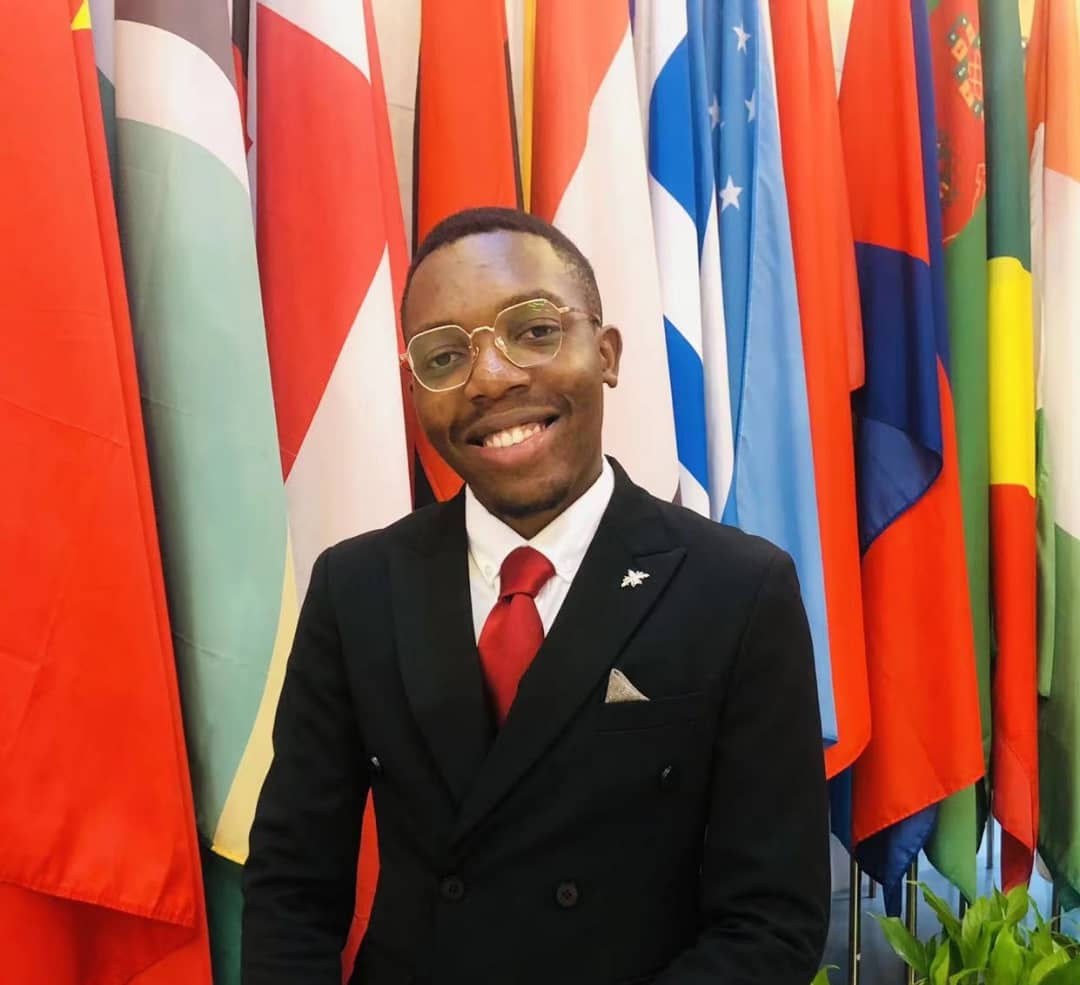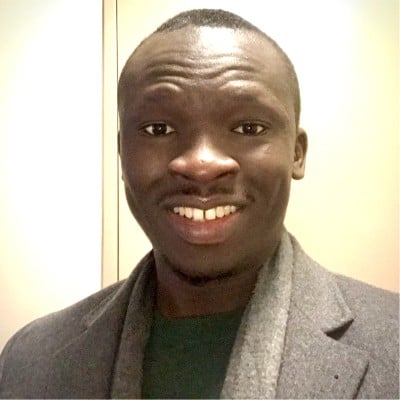June 03 Day

8:00 GMT - Symposium begins
Central Africa (Yaoundé): 9:00 am, East Africa (Nairobi): 11:00 am, Paris: 10:00 am, Washington DC: 4:00 am, China (Beijing): 4:00 pm
Opening speeches
Professor Babacar FALL (IEA Saint-Louis)
Welcome speech
Linda SILIM MOUNDENE (Howard university)
Introduction to the day's work
Émile Aurélien AHUA (University of Nantes)

8:30 GMT - Presentations begin
Central Africa (Yaoundé): 9:30 am, East Africa (Nairobi): 11:30 am, Paris: 10:00 am, Washington DC: 4:30 am, China (Beijing): 4:30 pm
Axis
Rethinking Africa: Identity, Governance and Culture
ModeratorsEmile Aurélien AHUA (University of Nantes)
Moustapha HOYECK (Howard University)
Moderators chat
Jordan ESSOMBE EWANE
Abdel MOUNCHAROU (Howard University)

13h00 GMT - Round table
Central Africa (Yaoundé): 2:00 pm - 4:00 pm, East Africa (Nairobi): 4:00 pm - 6:00 pm, Paris: 3:00 pm - 5:00 pm,
Washington DC: 9:00am - 11:00am, China (Beijing): 9:00pm - 11:00pm
Pancras ZOUNTCHEGBE
Presentation themes
Sartre and the rehabilitation of the image of the black African - ELHadji FALLOU SAMB, Doctoral student in Philosophy (Senegal)
The marginalization of girls in the education system in North Cameroon and its impact on local development - Fadimatou SALI, PhD student, University of Ngaoundéré
(Re)thinking governance in Africa: the search for the right political regime - Jonathan Silverman M'PIGA NKOUOM, PhD student / ATER in Public Law - CRDEI - University of Bordeaux
What should be done with the national anthems of French-speaking Black Africa? An answer from a linguist - Esaïe MANDENG Ma BELL, lecturer in the French department at the École normale supérieure in Yaoundé.
The power of art: (re)constructing the image of Africa - Aminata COLE RUPERT, Doctor of Philosophy at Cheikh Anta Diop University
Speakers

Babacar FALL is Director of the Centre de recherche sur les métiers et la mémoire en Afrique, affiliated with the doctoral school "Etude sur l'Homme et la Société (ETHOS)" atCheikh Anta Diop University in Dakar, Senegal. He has held a number of administrative posts, including Head of the History and Geography Department of the Faculty of Science and Technology of Education and Training (FASTEF) at Dakar University. Since 1984, he has held a post-graduate doctorate in history from the University of Dakar. In 2008, he was awarded anhonorary doctorate from the University of Le Havre, and in 2010 he received his doctorate in history (Ph.D) from the University of Amsterdam. A specialist in labor history in French-speaking West Africa, his research focuses on migration, pedagogical innovations and educational reforms. Alongside his academic activities, he is a founding member and coordinator of the Groupe pour l'Etude et l'Enseignement de la Population (GEEP). This is a professional action-research association accredited as a non-governmental organization (NGO), working in the fields of health education and youth leadership development. He has also been a guest researcher with the Fulbright Program, the University of Oregon's Savage Award, the Stanford Humanities Center and theInternational Research Center Re:Work at Humbolt University in Berlin.
Mohamed S. Camara

Mohamed Saliou Camara is a professor of History, Philosophy, and Mass Communication and the current chair of the Department of African Studies at Howard University, Washington, DC. He received an MA and a Ph.D. from Northwestern University in History on a Fulbright Scholarship. He also holds a DES in Philosophy from the Gamal Abdel Nasser University of Conakry (Guinea), and an Advanced Professional Degree in Journalism from the University of Dakar (current Cheikh Anta Diop University, Senegal). Camara taught at Embry-Riddle Aeronautical University in Florida where he also served as Director of the McNair Scholars Program, Speaker of the Faculty Senate, and Associate Vice President for Academics. Camara is the author of seven books, numerous peer-reviewed articles, and book chapters on African studies with a focus on political history; media, politics, and society; religion and philosophy; civil-military relations; human security; and intra-African foreign relations.
Yvan Megaptche

Megaptche Megaptche Yvan Rudhel is a Cameroonian Lecturer of Linguistics and Translation Studies at Hubei University of Automotive Technology, School of Foreign Languages. In 2016, he got his bachelor's degree in trilingual (French-English-Chinese) studies applied to translation at the Higher Institute of Translation and Interpretation of Yaounde, Cameroon. In September 2016 he moved to China for his MTCSOL (Masters in teaching Chinese to speakers of other languages) at Southwest University, International College. In June 2022, he obtained his PhD in Translatology at the College of International Studies of Southwest University. Dr. Megaptche is equally author of several articles in the field of translation, a member of the African Association for Translation Studies, and a freelance translator. His research interests are (but not limited to) cognitive translation, cultural translation and translation pedagogy.
Benjamin Maiangwa

Benjamin Maiangwa holds a PhD in Peace and Conflict Studies from the University of Manitoba, Canada. He his the author of two books, "The Crisis of Belonging and Ethnographies of Peacebuilding in Kaduna State, Nigeria" (Lexington Books, 2021) and "The Paradox(es) of Diasporic Identity, Race and Belonging" (Palgrave Macmillan, 2023). He is an Assistant Professor of Political Science at Lakehead University, Canada. He researches the contested notions of home, belonging, and how people experience conflict and peace in everyday life.
Chambi Chachage

Chambi Chachage is an assistant professor at Howard University, where he teaches courses on 'African Systems of Thought' and 'Introduction to Contemporary Africa'. He holds a PhD (African Studies) from Harvard University, MSc (African Studies) from the University of Edinburgh, BSocSci (Psychological Studies) and BA Honors (African Studies) from the University of Cape Town (UCT). He was a graduate exchange program student at the University of Massachusetts at Amherst (UMASS-Amherst) and International Scholar Research fellow at Stanford University. He has published in journals such as theReview of African Political Economy (ROAPE),Development,African Sociological Review, andBusiness History Review (BHR). With Annar Cassam, the former Assistant to the first President of Tanzania, he is the editor ofAfrica's Liberation: The Legacy of Nyerere. His forthcoming book entitledAfricanizing Capital: Emergence of Black Entrepreneurs in Eastern Africa is expected to be published in 2023/2024. He is also the founder ofwww.udadisi.com, a multimedia e-platform forcritical views on African issues.
Daily workshops

8:00 - 10:00 GMT - Leveraging Strategic Collaborations, Institutional Partnerships, and Innovation in Higher Education for Sustainable Development in Africa
Central Africa (Yaoundé): 9:00 AM - 11:00 AM, East Africa (Nairobi): 11:00 AM - 1:00 PM, Paris: 9:00 AM - 11:00 AM, Washington DC: 3:00 AM - 5:00 AM, China (Beijing): 4:00 PM - 6:00 PM

6:00 pm - 8:00 pm GMT - Data collection and management
Central Africa (Yaoundé): 19h-21h, East Africa (Nairobi): 21h-23h, Paris: 20h-22h, Washington DC: 14h-16h, China (Beijing): 02h-04h

6:00 pm - 8:00 pm GMT - Writing and publishing in research: choosing scientific blogs
Central Africa (Yaoundé): 19h-21h, East Africa (Nairobi): 21h-23h, Paris: 20h-22h, Washington DC: 14h-16h, China (Beijing): 02h-04h

6:00 pm - 8:00 pm GMT - Designing and writing your research project
Central Africa (Yaoundé): 19h-21h, East Africa (Nairobi): 21h-23h, Paris: 20h-22h, Washington DC: 14h-16h, China (Beijing): 02h-04h

19h00 - 21h00 GMT - Thinking about a career in research
Central Africa (Yaoundé): 20h-22h, East Africa (Nairobi): 22h-00h, Paris: 21h-23h, Washington DC: 15h-17h, China (Beijing): 03h-05h
Hosted by our partner RAJEC-STER





